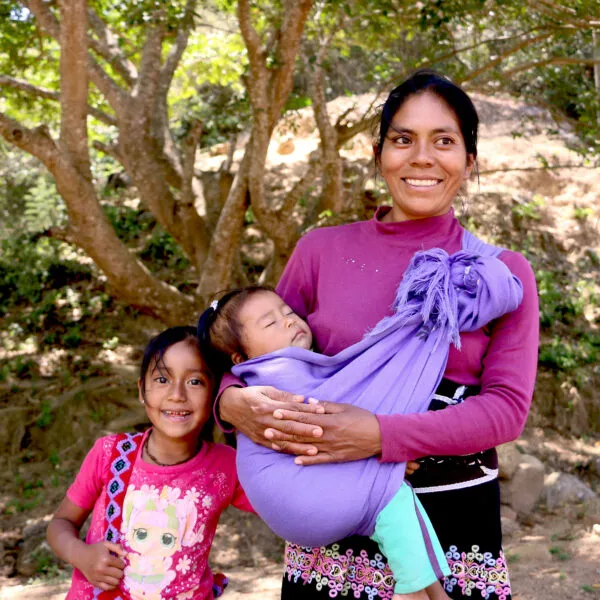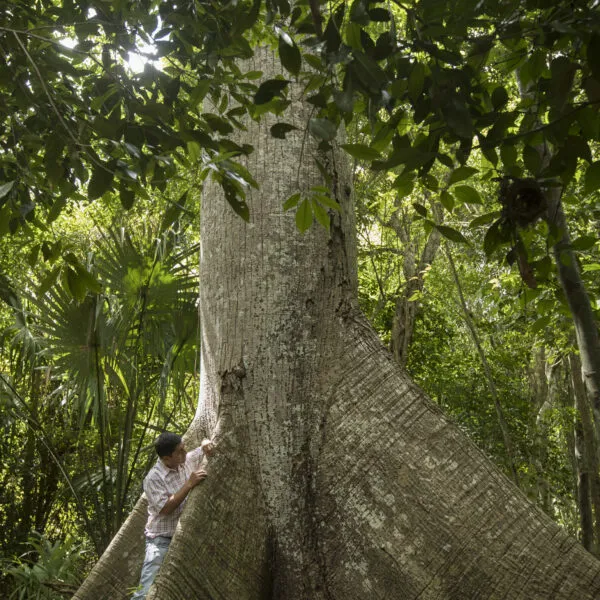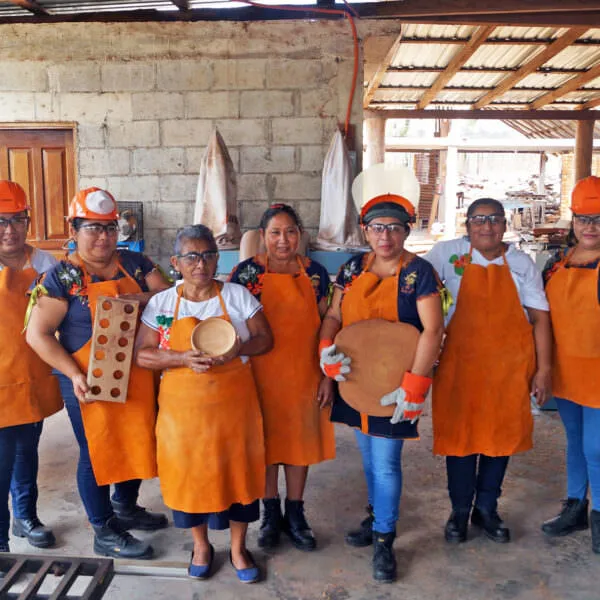When the Rainforest Alliance teamed up with Olam Food Ingredients (ofi) in 2018 under a USAID initiative called Alliance for Sustainable Landscapes and Markets, the goals of the five-year project were clear: to improve the conservation practices and economic health of eight Indigenous coffee-farming communities in Chiapas, Mexico.
With our partner ofi, we painstakingly laid out and executed activities that would help us reach these goals. As a result, the communities planted 1.1 million fungus-resistant coffee plants and 600,000 native shade trees, restoring 110 previously degraded hectares and improving the management practices of 1,243 hectares. Coffee yields almost doubled for some communities—and more than doubled for others.
As impressive as these achievements are, the Rainforest Alliance understands that for a community and landscape to thrive, sometimes more is needed than conservation and livelihood support. That’s why, as the Rainforest Alliance’s Eileen Müller Guerra says, “We don’t just go in and do only what’s in the proposal. If we see a need, and it’s something we don’t have the expertise to address, we reach out to members of our alliance.” Müller, who along with her colleague Nayeli Almanza Lazcano oversaw implementation of the initiative, shares some activities that the Rainforest Alliance coordinated after getting to know the communities and learning of their additional needs.
Fire prevention and fire fighting
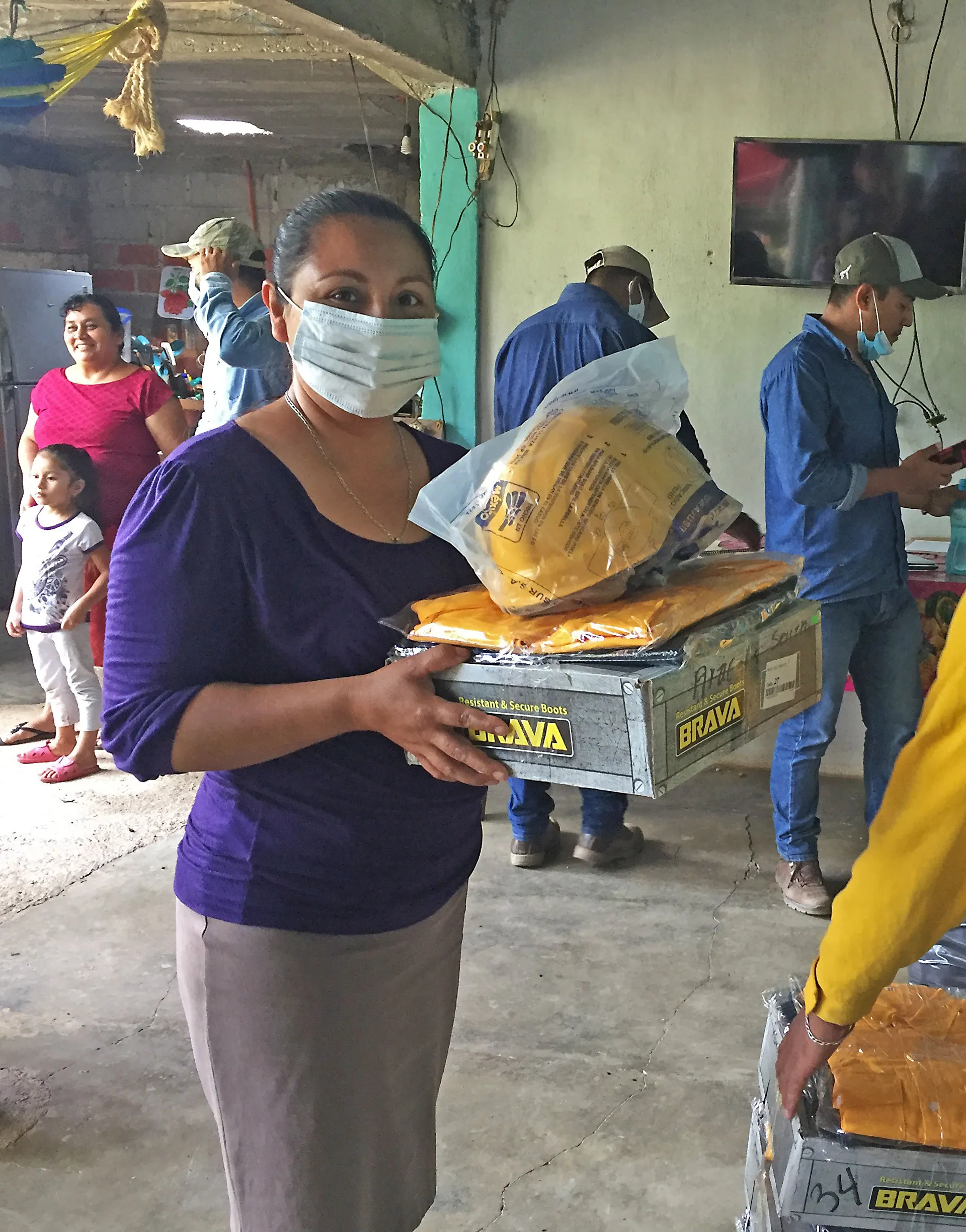
Early in the initiative, the Rainforest Alliance team visited one of the communities and learned that a fire had recently ripped through a large section of newly planted trees, along with some coffee plots. While this community does not use fire to clear land (a traditional farming practice prohibited in the Rainforest Alliance standard), nearby non-certified farmers do, and those fires sometimes rage out of control. “Farmers will go out and do everything they can to protect their land because it’s all they have—it’s the source of their livelihoods,” Müller said. “Lives have been lost that way.”
Demoralized about the loss of their coffee plants and trees, the community asked for help with dealing with the threat of fire. “We said, ‘Well, we don’t work in fire management, but we’ll see what we can do,’” Müller said. Because the Rainforest Alliance in Mexico has a longstanding relationship with the US Forest Service (which has worked in Mexico for more than 25 years ), as well as with CONAFOR, Mexico’s national forestry commission and Fondo Mexicano para la Conservación de la Naturaleza (FMCN), we reached out to these agencies. Then we asked local organization BIOMASA to take the lead in providing trainings in fire prevention.
BIOMASA also created community-specific fire protocols, depending on such factors as geography, water availability, and more. “The national protocol involves various institutions and a chain of command that is extremely effective. But with these areas being so remote and hard to get to, the first response often needs to come from within the community,” Müller explained. In addition to promoting a culture of prevention, the trainings also focused on familiarizing the communities with the national protocol and knowing when it was safe to take action and when to wait for professional fire fighters. Each community now has a brigade, made up of both men and women, certified to CONAFOR’s firefighting standards.
“They no longer live in fear of seeing smoke rise from the surrounding mountains,” said Rainforest Alliance’s Daniel Domínguez Monzón, who worked closely with the communities throughout the initiative. “They know how to analyze the smoke and activate the response protocol in which they were trained.”
Business skills
A crucial part of the initiative’s original plan was to improve the business processes of the cooperative to which the communities belong. But over the years the Rainforest Alliance team in Mexico had come to realize that the customary practice of sending in a consultant for a few discrete workshops was not producing the best results. For one thing, asking a cooperative to open its books to a stranger was a big ask; trust had to be established first. The team also determined that a more rigorous and thorough follow-up schedule was needed.
First, the Rainforest Alliance took the time to build relationships with key figures at the cooperative, Unión de Productores Región Fraylesca Oro Verde. Only then did we introduce a consultant, who stayed every day for four weeks to learn about Oro Verde’s processes and challenges and to create more effective ways of working. The consultant then left, returning for a week every two months, over a period of six months, to support implementation of the new structures. Everything from management of the cooperative’s extensive plant nursery to invoicing procedures to trading practices underwent rigorous streamlining and strengthening. With significantly improved financial and administrative processes in place and a tighter business model, Oro Verde is better equipped to continue increasing profits.
Health and nutrition
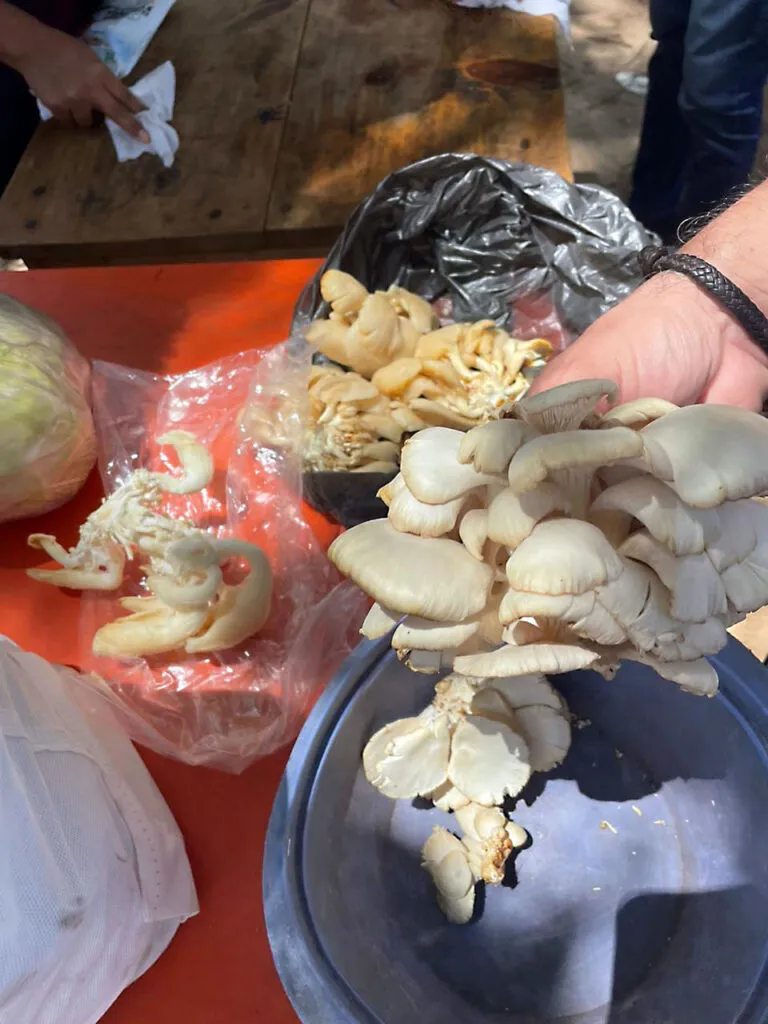
Under an ambitious new sustainability strategy, our partner ofi had a mandate to support good nutrition in the communities. After performing an assessment, ofi found two communities, La Ramona and Nuevo Mitontic, to be at particularly high risk for malnutrition and obesity. To address this concern, the Rainforest Alliance’s Domínguez, who had ties to UNICACH, the local university, reached out to Professor Vela-Gutiérrez, a food science expert there. The professor was eager to collaborate and involve colleagues and students, who gave classes on nutrition and food handling and storage to members of the two communities. The UNICACH team created and handed out materials in both Spanish and Tzotzil (the first language of many community members) on nutrition, recipes, and hygiene.
We again called on BIOMASA to help establish 16 mushroom plots, and the team from UNICACH gave workshops on preparing mushroom-based meals and on preserving mushrooms. Chiapas’s ministry of environment and natural history, SEMAHN, also offered trainings on local herbs and edible plants, since the people of La Ramona and Nuevo Mitontic are relatively new to this ecosystem and its species, having arrived here less than twenty years ago after fleeing violence in their ancestral lands.
Our work with these eight Indigenous coffee communities exemplifies some of the Rainforest Alliance’s core values: Listening to community needs, working in alliance with the communities and other partners, and promoting self-determination. “The initiative has ended but now the communities have their own relationships with all these institutions and partners,” the Rainforest Alliance’s Nayeli Almanza said. “The only way to sustain the achievements of an initiative like this—and to set the communities up to thrive into the future—is to engage the alliance.”

